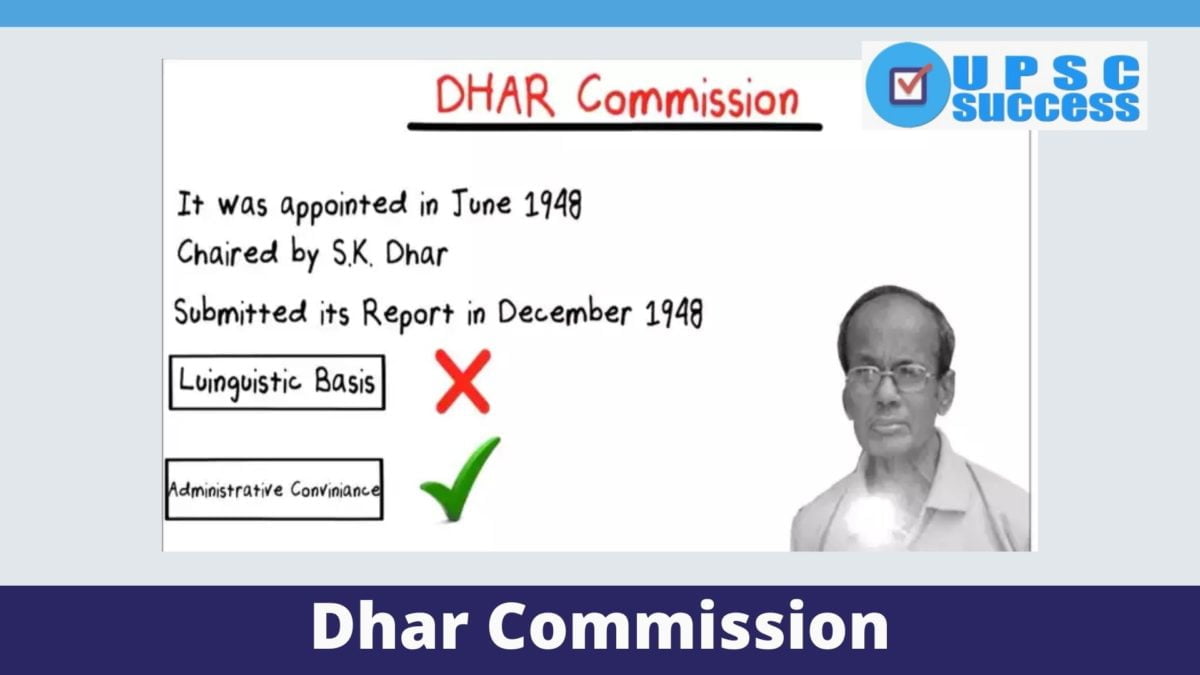There has been a demand from different regions, particularly South India, for the reorganisation of states on a linguistic basis.
Accordingly, in June 1948, the Government of India appointed the Linguistic Provinces Commission under the chairmanship of S.K. Dhar to examine the feasibility of this.
The commission submitted its report in December 1948 and recommended the reorganisation of states on the basis of administrative convenience rather than linguistic factors.
Dhar to study the feasibility of organizing states on a Linguistic basis. The report submitted by the Dhar commission led to much resentment among the people. As a result, in the Jaipur session of 1948, Congress appointed a three-member committee to consider the recommendations of the Dhar Commission.
Do you have any questions on Dhar Commission? Ask them
FAQs
Dhar to study the feasibility of organizing states on Linguistic basis. The report submitted by Dhar commission led to much resentment among the people. As a result, in the Jaipur session of 1948, Congress appointed a three-member committee to consider the recommendations of Dhar Commission.
To recommend whether the States can be reorganized on a linguistic basis. Dr. Rajendra Prasad, the President of the Constituent Assembly, set up the Linguistic Provinces Commission (Dhar Commission) to recommend whether the states should be reorganized on a linguistic basis.
S.K. Dhar was the chairman of the first Linguistic Provinces Commission set up by the Government of India in 1948.
The Dhar commission had recommended the reorganisation of states on the basis of linguistic factors. JVP Committee had rejected language as the basis for the reorganisation of states.
The first state to be created on a linguistic basis was Andhra in 1953, created out of the Telugu-speaking northern parts of Madras State.
Indian Constitution (basics):
- Historical Background Of The Indian Constitution
- Making Of The Constitution
- Source Of The Indian Constitution
- Salient Features Of The Constitution
- Indian Constitution Parts and Articles.
- Parts of Indian Constitution: A brief overview.
- Schedules of Indian Constitution: A brief overview.
- Must-Know Articles of Indian Constitution: A brief overview.
- List of amendments to the Constitution of India
- Comparison of Indian Constitutional Scheme with other countries
Indian Constitution (Topics in the same order):
- The preamble of the Constitution
- Union And Its Territories
- Citizenship
- Fundamental Rights
- DPSP (Directive Principles of State Policy)
- Fundamental Duties
- President
- Vice President
- Prime Minister
- Council Of Ministers – State
- Attorney-General
- Parliament: Rajya Sabha
- Parliament: Lok Sabha
- Supreme Court of India: Powers and Jurisdiction
- Governor
- The Chief Minister & CoM
- State Legislature: High Court

